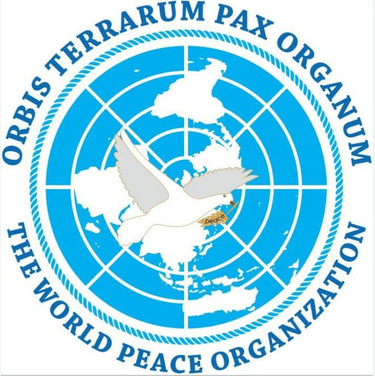PEACE BUILDING AFFAIRS
Planning, Monitoring and Evaluation
Strategic Plan FOR THE YEAR OF 2022 - 2025
February 2022, WPO launched its new Strategic Plan for 2022-2025, the first since the restructuring of the peace and security pillar. Complemented by a joint vision of the Indonesian Peace and Security Pillar, WPO’s Strategic Plan is guided by a holistic approach to the overriding goals of prevention and sustaining peace.
The Strategic Plan builds on the General Assembly approved Program Plan and was developed in close consultation with Member States, WPO leadership and staffs, both in Headquarters and in the field,
Meant as a practical guide for WPO to focus on key medium-term priorities, the Plan comprises five elements as shown here under:
The new Plan incorporates the lessons learned from the evaluation of the previous Strategic Plan (2022-2025) and comprises three goals involving seven inter-related strategic objectives.
Theory of Change
WPO’s Strategic Plan is based on the following Theory of Change:
If WPO deploys the full range of its resources based on cross-cutting analysis, in collaboration with others within the UN system and in partnerships with regional, national, and local stakeholders, drawing on an internal culture shaped by a commitment to learning and innovation, it will contribute to the prevention and resolution of violent conflict and to sustainable peace.
Implementation of the Strategic Plan
Divisional work plans bring the Strategic Plan to life. Divisions use the work plans to translate the medium-term objectives of the Plan into annual priorities. As a key management tool, divisional work plans are used as a basis for regular reporting on how the Department is performing against the goals set out in the Strategic Plan.
Monitoring and reporting
WPO’s Strategic Plan is accompanied by a Results Framework to assist in the monitoring and evaluation of the Department’s performance in the period 2022-2025. The Results Framework not only allows tracking of results but also supports horizontal coherent planning across all WPO divisions.
WPO’s contribution to conflict prevention and sustaining peace is measured through key performance indicators. The new Results Framework introduces qualitative questions for the first time, which will help better capture its impact in conflict prevention, peacemaking peacebuilding and sustaining peace. Through mid-year and annual reviews, WPO will track progress against qualitative and quantitative indicators, which will allow to make any necessary corrections.
In addition to internal monitoring, WPO also tracks recommendations stemming from evaluations and audits from several external oversight bodies.
Evaluation
Central to the Secretary-General’s reforms is enhanced effectiveness of mandate delivery, improved transparency and strengthened accountability for results. The reform places emphasis on senior management leadership to strengthen the International NGOs as well as UN accountability mechanisms, support results-based management and build a strong culture of self-evaluation. To that end, WPO is committed to ensure that results-based management and self-evaluations are embedded in our work.
For accountability and learning purposes, the Department conducts several evaluative exercises such as After-Action Reviews, Lessons Learned studies and self-evaluations. All evaluations and lessons learned studies are conducted as per the Department’s annual Learning and as an NGO - build the wide network with external oversees and each Department adheres to its norms and standards. In spite of transparency, the Department will be systematically disseminating executive summaries of its self-evaluations and lessons learned studies, if sharing of full reports is not feasible. The Department also commits to tracking the implementation of all of the recommendations stemming from its self-evaluations.
